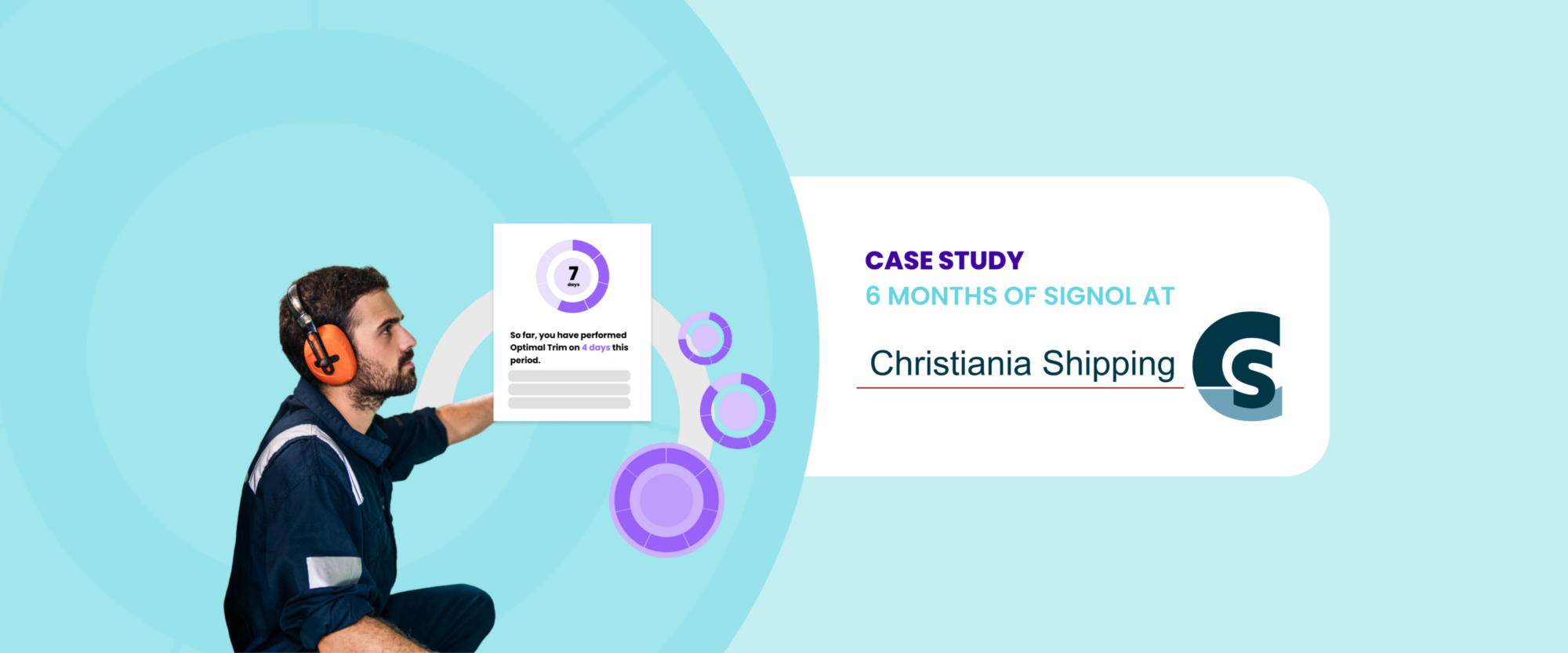Crew members showed a 16% increase in successful implementation of the trim behaviours during the trial period, with vessels systematically trimmed an average of 0.22 metres closer to even keel, which almost always represents the most efficient trim for the vessel type.
“Our ongoing work with Christiania Shipping shows that focusing on efficient human behaviour can close the gap between fuel performance monitoring and achieving tangible improvements to reduce emissions in practice,” said Harriet Hunnisett Johnson, Head of Maritime at Signol.
“Christiania has very quickly seen that small changes to crews’ actions can add up to really significant fuel savings. The collaboration between Signol and Christiania created a culture of positive engagement with sustainability onboard and the conditions for crew members to do their best work and know that they are making a difference.”
Signol’s behavioural science solution took Christiania’s existing fuel performance monitoring initiatives a step further by using detailed vessel data and insights on fuel consumption to identify four specific opportunities for fuel saving and promote related fuel-saving actions across 70 crew members.
Alongside Signol’s set of behaviour change techniques, Christiania also added Signol’s optional techniques of charitable and personal incentives, making donations to two causes for every fuel-saving goal hit: ships’ welfare funds and The Ocean Cleanup charity.
During the trial, Christiania’s crew hit 4,400 fuel-saving goals and reported a sense of pride and purpose from knowing that their efforts made a significant impact. In a feedback interview, a crew member explained that Signol produced “double happiness” for the crew since individuals know that their efforts result in both emissions reductions and charity donations.
Want to learn more about our work with Christiania Shipping during the 6-month trial? Download our case study here.

